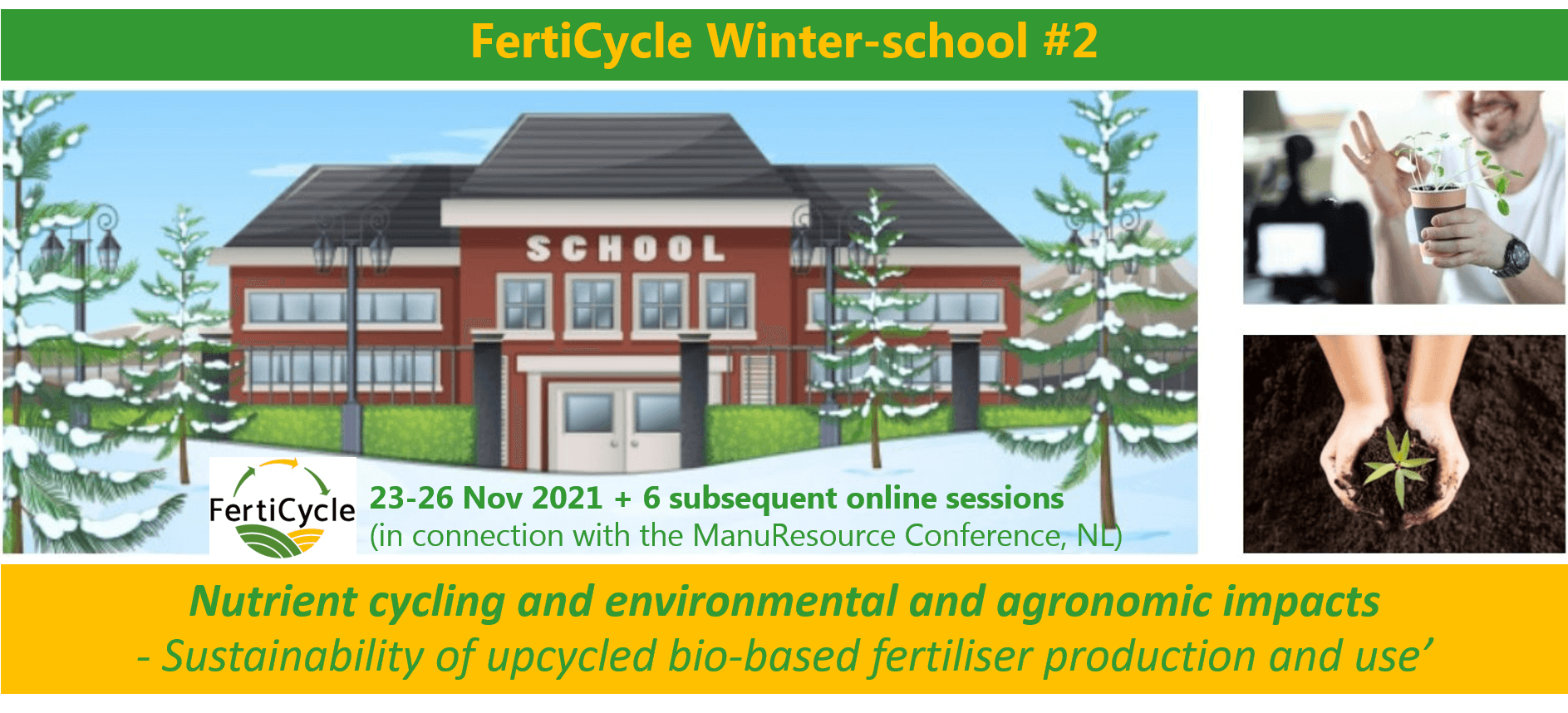FertiCycle Winter-school
FertiCycle Winter-school #2 to be held in connection with the ManuResource conference
The FertiCycle project will be organising it’s 2nd Winter-school in connection with the ManuResource conference in the Netherlands in November this year. This will be a PhD course for all the FertiCycle Early Stage Researchers, but also open to a limited number of PhD students from other projects.

The title of the course is ‘Nutrient cycling and environmental and agronomic impacts - Sustainability of upcycled bio-based fertiliser production and use’ and it will be organised around the ManuResource conference on 24-26 Nov in Den Bosch in the Netherlands. It will aim to give participants a thorough understanding of the agronomic, environmental and market impacts from the production and use of different bio-based fertilisers (BBF). Furthermore it aims to raise student awareness and knowledge of sustainability concepts (environmental, economic, social aspects) related to upcycled bio-based fertiliser production and use. Finally the course aims to introduce students to the scientific conference format and provide them with tools to get the most out of participating in such.
The Winter-school will be led by FertiCycle PI, Lars Stoumann Jensen, Prof. at University of Copenhagen (UCPH) and Dave Chadwick, Prof. at Bangor University (BU), but will also have contributions from other FertiCycle members and ManuResource conference presenters.
The course will be initiated with a preparatory session the day before the ManuResource conference, including introduction to agronomic and environmental aspects of BBF, as well as planning and prioritisation of the students’ participation in the conference. Then follows the actual ManuResource conference with active participation and information gathering by the students. After the conference, a debriefing session will be held (online, the week after), where students report back on the various parts and aspects of the conference they focused on, and where the overall outcomes and learnings are discussed. Finally, a series of biweekly webinars and online discussions (5 in total) on sustainability aspects of BBF is organised with and by all students.
As an outcome of the course, FertiCycle Winter-school students will have a chance to contribute to a chapter on ‘New bio-based fertilisers from organic waste upcycling and their application in agriculture’ in a new book on ‘Developing circular/closed-loop agricultural production systems’ to be published by Burleigh Dodds next year.
Non-FertiCycle PhD students interested in participating should send a mail to Paul Ernst Petersen (pepe@plen.ku.dk) stating your name, organization, project to which you are associated, before 1st Nov 2021. Priority will be given to students who also participated in the FertiCycle Winter-school 1.
